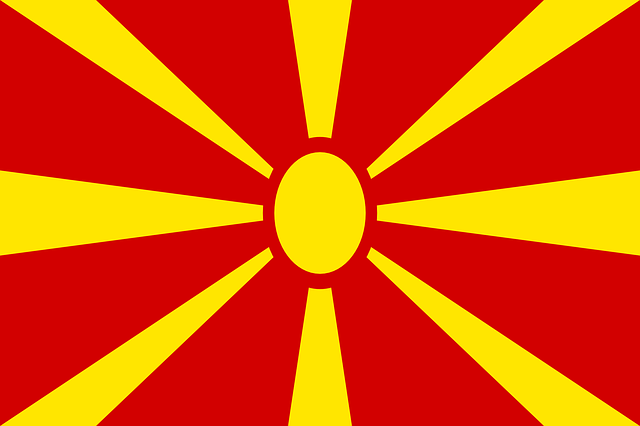Macedonia has a different place in the geography of the world. There are many such things in this country that separate this country from other countries such as language, living style, dress, culture, religion, business. Let us know about some such unique facts related to the country of Macedonia and important events related to history, knowing which your knowledge will increase.
Macedonia Country Quick General Knowledge
| Country | Macedonia |
| Capital | Skopje |
| Currency | Macedonian denar |
| Continent | Europe |
| Father/Founder of Country | Krste Misirkov |
| National Anthem of Country | Denes nad Makedonija, (Today over Macedonia) |
Read Also: Name of the country, their capital and currency List
- Macedonia, officially officially called Republic of Macedonia, is a landlocked country located on the central Balkan peninsula of southern Europe.
- Macedonia is bordered by Kosovo in the northwest, Serbia in the north, Bulgaria in the east, Greece in the south and Albania in the west.
- Macedonia gained independence from Yugoslavia on 8 September 1991.
- Macedonia is the only country to have gained independence from Yugoslavia without having to shed a single drop of blood.
- Alexander the Great, king of the former Kingdom of Macedonia, was the first world-size conqueror, who extended his empire in Greece and Persia into India and Egypt.
- The official Cyrillic alphabet in Macedonia is based on the alphabet developed in the 9th century by two brothers Saint Cyril (Cyrillic) and Saint Methodius.
- Macedonia has a total area of 25,713 km2 (9,928 sq mi).
- The official language of Macedonia is Macedonian.
- The currency of Macedonia is the name Macedonian Dinar (MKD).
- According to the World Bank, the total population of Macedonia in 2016 was 20.8 lakhs.
- There are more than 50 lakes and 16 mountains over 2000 m (6,562 ft).
- The Vrelo cave in Macedonia is underwater, with a depth of 77 meters, which is the deepest underwater cave in the world.
- In 2006, it became the first country in the world to have full access to a wireless broadband connection, after being part of a high-tech project.
- Ohrid Lake is one of the oldest lakes, which has a depth of 288 meters. It was declared a World Heritage Site by UNESCO in 1979.
- Skopje, the capital of Macedonia, has more than 500000 people. It accounts for about a quarter of the total population of 2.1 million.
- 02 August 1903 - The internal Macedonian revolutionary organization began the Ilindon Rebellion against the Ottoman Empire in Macedonia.
- 24 October 1912 - First Balkan War-Surbian forces defeated the Ottoman army in the battle of Kumanovo in Vardar Macedonia.
- 19 November 1912 - In the First Balkan War, Serbia's army captured Betola and ended the Ottoman rule of Macedonia.
- 01 June 1913 - The alliance of the Greek-Surbian Treaty is signed, paving the way for the second Balkan War. After the first Balkan War, when the two countries wanted to preserve their profit in Macedonia with Bulgarian expansionism. The treaty formed the foundation stone of Greek-Surbian relations for a decade, which remained in force through the World War.
- 18 September 1918 - First World War- The defeat of Central Powers in the Battle of Dobro Pols played a role in Bulgarian return from the war and opened the way for the later liberation of Vardar Macedonia.
- 11 October 1941 - Armed rebels of Macedonia's People's Liberation Army, while beginning the National Liberation War of Macedonia, attacked the Axis occupied areas in the city of Pilp.
- 31 January 1946 - Yugoslavia disintegrated into six countries based on the model of the then Soviet Union (Serbia, Montenegro, Croatia, Slovenia, Bosnia-Herzegovina, Macedonia).
- 15 September 1991 - Macedonia, located in the south eastern region of Europe, declared its independence from Yugoslavia.
- 08 September 1991 - The Republic of Macedonia became independent.
- 25 June 1991 - Croatia and Slovenia declared their freedom from Yugoslavia. The socialist federal republic of Yugoslavia was the state of Yugoslav, which existed from its foundation after World War II. It was a socialist state and a union made of six socialist republics: Slovenia, Croatia, Bosnia and Herjegovina, Serbia, Montenegro and Macedonia.
Macedonia FAQs:
The capital of Macedonia is Skopje.
The currency of Macedonia is Macedonian denar.
Macedonia is the part of Europe continent.
The languages spoken in Macedonia are Macedonian, Albanian.
The national anthem of Macedonia is "Denes nad Makedonija, (Today over Macedonia)".
Krste Misirkov is considered the founder/father of Modern Macedonia.

